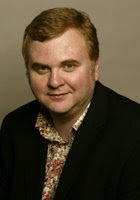1) A Collection of Essays by George Orwell —For their clarity, their refusal of cant, sentiment, ideology, or false comfort. A book that reminds the critic of the necessity—and difficulty—of being honest.
2) For Keeps by Pauline Kael —Nervy, funny, passionately argued, committed to the belief that art has to be about pleasure, and that pleasure can come from anywhere. Also because it’s a constant source of irritation to those who have so little backbone they’re threatened by the use of “you” instead of “one.”
3) A Reader’s Manifesto by B.R. Myers— It says something about the blood drawn by Myers’ argument for lucidity in literary prose that the writers who attacked it found it necessary to falsify it to make their (rigged) points. Not one of them has explained why, if Myers is arguing for dumbed-down prose, he extols Conrad, Woolf, Faulkner, and Joyce. Though their insularity does make a pretty good argument for how easily literature could go the way of the spinnet in the parlor.
4) Born in Flames by Howard Hampton—If a critic is any good, he or she will soon tire of the describe, evaluate, sum up form of criticism. Working under the radar for two decades now, Hampton takes leaps as imaginative as any critic now writing.
5) The first two paragraphs of D.H. Lawrence’s essay on John Galsworthy, included in “Phoenix.”—“We judge a work by its effect on our sincere and vital emotion, and nothing else. All the critical twiddle-twaddle about style and form, all this pseudo-scientific classifying and analysing of books in an imitation-botanical fashion, is mere impertinence and mostly dull jargon.”
Charles Taylor is a columnist for the Newark Star-Ledger. He is also a regular contributor to the New York Times, the Los Angeles Times, Newsday, Dissent, the Nation, and Bloomberg Muse.


